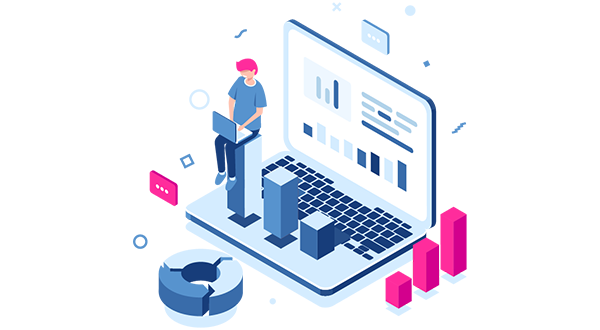

The Imperative of Deep Dive Assessments in Mainframe Modernization

The mLogica Migration Team
Why assessments are the foundation
In today’s fast evolving enterprise technology landscape, mainframe systems remain vital for industries like finance and government, where uptime and data integrity are non-negotiable. Yet, their reliance on legacy languages like COBOL, Assembler, and Easytrieve creates challenges for scalability, cost, and integration with modern cloud native technologies.
Mainframe modernization is now a strategic necessity, and the critical first step is a deep dive assessment.
A deep dive assessment provides a comprehensive evaluation of the legacy environment, cataloging applications, databases, and dependencies such as JCL scripts, VSAM files, and obscure components like IMS or IDMS. This granular insight is essential for creating a precise modernization roadmap, identifying risks, and avoiding costly errors or project failures. Without it, organizations risk proceeding with incomplete information, leading to delays, budget overruns, or technical debt.
Risks That Derail Modernization Projects
Skipping a deep dive assessment before mainframe modernization can lead to severe consequences, as organizations proceed with incomplete knowledge of their complex legacy environment. Without cataloging applications, dependencies, and hidden components like COBOL, Assembler, or VSAM, projects often encounter unexpected technical challenges, resulting in significant cost overruns from unplanned rework or resource allocation. Misunderstood interdependencies can cause project delays, as teams scramble to address unforeseen issues, or even lead to complete project failure when critical systems break during migration. This lack of clarity not only jeopardizes budgets and timelines but also risks operational disruptions, regulatory non-compliance, and persistent technical debt, undermining the modernization effort's goals.
mLogica’s LIBER*DAHLIA software streamlines this process with automated discovery and analysis, reducing human error and accelerating the identification of complex dependencies. It maps applications, non-standard components, and data flows, delivering actionable insights for decisions like refactoring, replatforming, or adopting hybrid approaches. This precision enables tailored cloud strategies that align with business goals, ensure regulatory compliance, and unlock cost efficiencies.
A real-world example highlights the value: a large U.S. insurance provider used LIBER*DAHLIA to assess its mainframe, including 159 QuickJob programs. The tool mapped dependencies, flagged redundant code, and enabled a seamless transition to Micro Focus COBOL in a cloud native architecture. The result was zero downtime, preserved workload integrity, faster delivery, and significant savings.
The Cost of Inaction
Clinging to outdated mainframes is a strategic liability in an era defined by agility and data-driven decisions. Legacy systems hinder innovation, increase costs, and complicate talent acquisition. Modernization is essential but diving in without a fact-based foundation to risk spiraling costs, stalled projects, or catastrophic failures. A deep dive assessment mitigates these risks by providing clarity and structure.
LIBER*DAHLIA’s automated scans uncover hidden dependencies, quantify project scope, and align technical feasibility with business priorities. Unlike manual methods reliant on outdated documentation, it uses pattern recognition to identify deprecated code and maps business logic for stakeholder understanding. This ensures informed decisions on whether to refactor applications into microservices, rehost them, replace them with SaaS solutions, or retire them.
Foundations for the Future
Mainframe modernization is a complex, multi-phase journey, but success hinges on a strong starting point. Deep dive assessments, powered by tools like LIBER*DAHLIA, provide the insights needed to plan effectively, mitigate risks, and meet technical and business objectives. For organizations aiming to embrace cloud native infrastructure, reduce legacy risks, or boost agility, the question is simple: Do you fully understand your current environment?
With LIBER*M, the answer is yes.








































